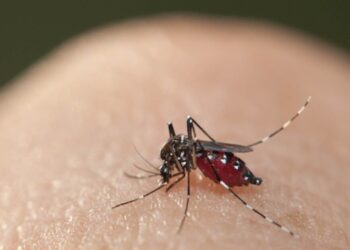Eating disorder treatment specialists are sounding the alarm over new guidance from the American Academy of Pediatrics advising doctors to treat obesity earlier and more aggressively, which they say could lead to eating disorders.
They say it focuses on weight loss and BMI rather than health, minimizes the risk of disordered eating and could perpetuate deep-rooted, damaging stigmas.
“We run the risk of doing significant harm to kids who are 6 or 8 by telling them that they have a disease” — obesity — “simply based on their weight status,” says Dr. Kim Dennis, a certified eating disorder specialist and co-founder of SunCloud Health, a treatment center for eating disorders and other mental health issues.
Eating disorders among children and adolescents rose dramatically during the pandemic, and the risk of developing an eating disorder is higher among patients who’ve been diagnosed as overweight or obese and patients who’ve engaged in dieting.
But supporters say the updated guidance will help destigmatize obesity precisely because it treats it as a disease – like cancer or COVID – that requires medical intervention and isn’t the patient’s fault.
Supervised obesity treatment programs like the one the AAP recommends “are associated with lower risk of disordered eating,” says Dr. Sarah Hampl, an author of the new guidelines and a pediatrician at Children’s Mercy Kansas City. That risk rises “when youth try to do it on their own,” she says.
What does the guidance recommend?
Americans’ average weight has been rising dramatically for years, and so have the diseases linked to extra weight, like heart and liver diseases and diabetes, lending a sense of urgency for the AAP to encourage earlier action to stave off more serious health issues…
Read the full article here







